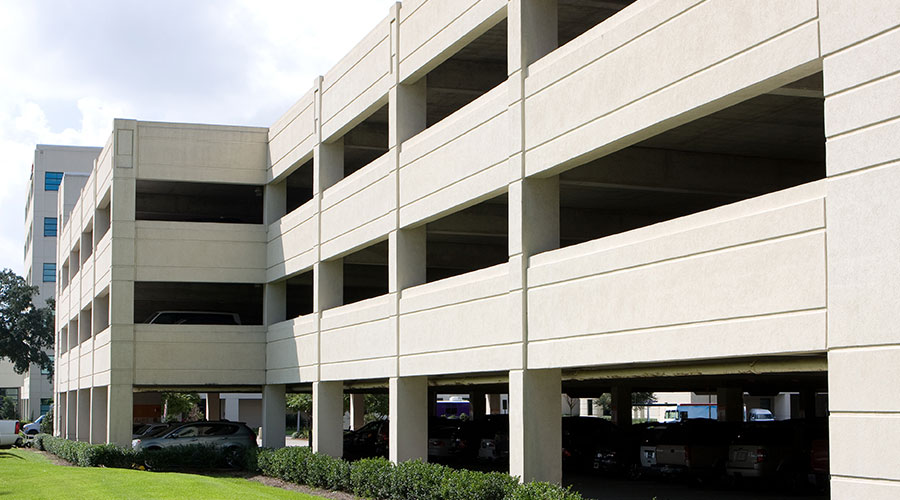Technician Retention: Building a Positive Culture
Amid staffing challenges, managers discuss key considerations related to building a positive work culture.
Staffing challenges in maintenance and engineering departments in institutional and commercial facilities do not end when managers find qualified front-line technicians to carry out their department’s mission. Managers face ongoing challenges related to ensuring that newly hired technicians remain on the job long-term and, ideally, build their careers with the organization.
In the third part of a three-part roundtable discussion, managers discuss key considerations related to fostering a positive work culture and retaining technicians. The managers are:
Steven Cox, Director of Facilities Operations, Tulsa (Oklahoma) Community College: "The Facilities Department has 54 employees, and each campus has one facility manager responsible for daily oversight and management of all facilities related campus activities. Each campus also has one maintenance supervisor who reports to the facility manager and oversees the engineering team. The engineering team at each campus consists of one or two maintenance assistants at each campus, one third-class engineer, and five to seven first class engineers. In total, 31 maintenance engineers reside across the four campuses.”
Gregg Sprowl, Program Manager, Access Controls and Security Systems, University of California, San Francisco: “We have 17 staff supporting the security systems at UCSF, myself as the program manager and two supervisors that are separated between our two main campuses, 13 staff persons that are locksmiths and security technicians, as well as one applications engineer.”
Daniel Schied, Director of Grounds, Cornell University: “We have: 34 grounds staff for grounds maintenance, landscape improvements, and sidewalk and stair snow removal; 11 landscape construction workers to primarily support utilities department in underground digs, landscape repairs, such as sidewalk panels, regrading, earthwork, parking lot and roadway snow removal; three mechanics for maintenance of all equipment, assist in procurement of vehicles and equipment, support roadway snow removal; three managers who each oversee a different aspect of campus; one admin/office manager for all paperwork, purchase orders, time reporting; and one director who oversees operation, new campus projects related to landscape, budgets, and large capital purchases.”
What successful strategies have you used to retain and motivate front-line technicians?
Scheid: Cornell provides a strong benefit package, and providing year-round employment in the landscape industry is a strong asset. We also provide training opportunities so staff can advance. We have had numerous employees move up our ranks this past year and even one team leader accepted a management position at Dartmouth, suggesting opportunities for advancement are not just at Cornell.
Sprowl: We have an outstanding benefits package. That always helps. From there, we work hard on employee engagement and encourage individual career growth. This organization is full of people that came here at entry-level positions that are now managers and leaders. In our department, we invest a lot in training during the onboarding process. We want to make sure our staff are knowledgeable in the systems they work on.
Cox: Through the hiring pathway established, our engineering staff understands and is more committed to the values and culture of TCC and our expectations. Our retention numbers are over 90 percent with those who have gone through the pathway program to first-class engineer, substantially higher than those hired from the outside. Also, when the engineers see those around them getting promoted, it's a natural encouragement. The support from TCC leadership at the highest levels approving deferred maintenance projects also predictably boosts morale. Lastly, giving them a voice as we've gone through these decision-making processes via real-time feedback further enhances and stabilizes the engineering department.
What else should people know about your staffing strategies and tactics?
Scheid: A simple but very tough rule: People do not care about how much you know until they know how much you care. This may not always be evident to all, but if you manage from a place of providing opportunities for staff to grow and develop personally and professionally, you are coming from the right place.
Sprowl: Make sure when vetting someone for a position, it doesn’t just include their skillset. Make sure their personality fits with your team. It only takes one bad apple to spoil the whole bunch.
Cox: Creating a positive culture where employees want to come to work has been and remains a priority for our department regarding employee retention. This is intentional and requires focused effort by facilities leadership who not just support but believe in and actively live this out. One way this has played itself out is hiring maintenance supervisors with not only the technical knowledge but the soft skills, emotional intelligence, and personal awareness.
I've often said the maintenance supervisor position is the most difficult management position in our department, as this position often is filled with first-class engineers who have shown the desire to advance — all four of our current maintenance supervisors were promoted from within — while having the least amount of management experience and supervising the largest group of employees. As they are working daily with their engineering team, it’s important they reflect the vision, character, and values so important to success and retention, which starts with a positive culture. Through the support of human resources, we provide leadership training to individuals who may be interested in taking on supervisory positions before they are placed in this role, as well as other soft skills, which serve them and their teams well.
Dan Hounsell is senior editor for the facilities market. He has more than 25 years of experience covering engineering, maintenance, and grounds management issues in institutional and commercial facilities.
Related Topics:














